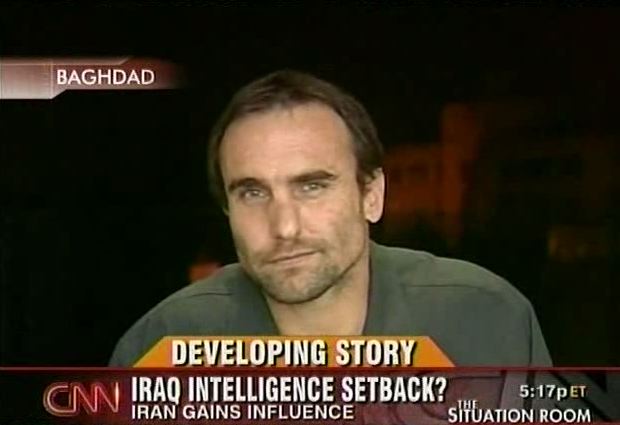TSR: "...legislation...that will gut the CIA's influence here..."

Click photo to play
Length: 3:54
WOLF BLITZER: In Iraq today, a carefully coordinated slaughter. Insurgents attacked Shiite pilgrims as they traveled to the holy city of Karbala. The attacks began in the morning with a roadside bomb in a Baghdad neighborhood. Then, like clockwork, at 15 minute intervals, bombings and shootings throughout Baghdad and its suicide bombers. There were more attacks in the afternoon, the worst at 4:15, when two suicide bombers blew themselves up among a crowd of pilgrims in the town of Hillah. That's 25 miles east of Karbala. Ninety-three people were killed there. About 150 were wounded.
Pilgrims are heading to Karbala on foot for Saturday's Shiite holy day marking the end of a traditional mourning period.
A rising toll for American troops in Iraq, as well. The U.S. military today announced the deaths of at least nine American soldiers in a pair of bombings yesterday in areas north of Baghdad. Four others were wounded.
All this comes amid an apparent setback for U.S. intelligence efforts in Iraq.
And joining us now in Baghdad, our correspondent, Michael Ware. Michael, you've been doing some exclusive reporting on this competition between the U.S. and Iranian intelligence services in Iraq.
What are you picking up?
MICHAEL WARE, CNN CORRESPONDENT: Well, Wolf, what it's coming down to now is the long-term victory in terms of intelligence here in Iraq.
What's at stake, Wolf, is the dominance of the Iraqi intelligence community. What we're seeing now is the Iraqi government, which U.S. military intelligence and Western intelligence claims is heavily dominated by political factions with ties to Iranian intelligence, trying to reset the landscape.
Just as you have in the United States with the CIA, the FBI, the DIA, a myriad of intelligence agencies, so you have here in Iraq. But there's legislation that's about to go before the Iraqi parliament that essentially will gut the CIA's influence here within the Iraqi community.
BLITZER: Who's winning right now, the CIA or the Iranian intelligence community, in terms of influencing events in Iraq?
WARE: Right now, you would have to argue that it's a tie, although politically one would say that Tehran has much more sway here in Baghdad than Washington does, among the intelligence community, it's still up for grabs.
BLITZER: But you're saying the long-term impact for the U.S. is not good.
It is good, though, for Iran?
WARE: Absolutely, Wolf.
What we're seeing is a complete resetting of the landscape. And as it stands right now, if these laws pass through parliament -- a parliament dominated by Iraqi Shia political factions that Western intelligence claims are linked to Iranian intelligence -- then completely Tehran will have the advantage.
While America invaded Iraq, removed Saddam, established what it calls a democratic government and the intelligence apparatus that goes with it, what we are now witnessing, Wolf, is Tehran swooping in and taking over, dominating the entire intelligence landscape under the CIA's watch.
BLITZER: A very disturbing picture you paint.
Thanks very much, Michael, for joining us.
WARE: Thank you, Wolf.
